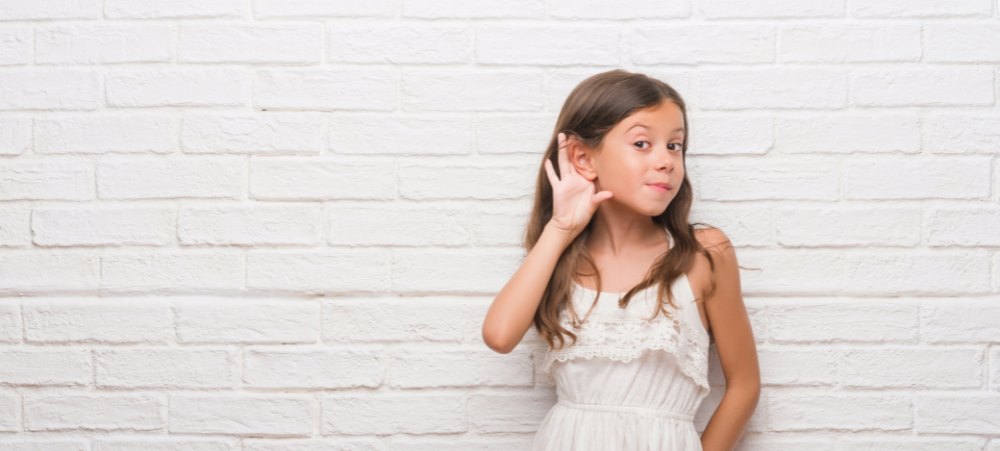Does this sound familiar?
“Joshua, it’s time for dinner…”
No answer.
Is he ignoring me? Or maybe he didn’t hear me…? Maybe I should get those ears checked…
When is it worthwhile taking your child for a hearing test?
Perhaps you recall your child had a hearing test at birth. Or perhaps there was so much going on that it seems like a distant memory. Most children do have their hearing screened at birth by an audiologist, but it depends on the hospital protocol. The test that is done at birth is a screening test to exclude significant hearing loss, but it is certainly worthwhile to repeat the hearing test several times as your child ages.
Ideally, your child should have their hearing tested at birth, at one year, at three years and at five years of age. This should be done by an audiologist, as doctors cannot test your child’s hearing.
Why is it so important to test my child’s hearing so frequently?
At Birth –This is normally a screening done in the hospital at birth, within the first few days of life. Hearing is tested using a small probe which measures echo responses from the cochlea (inner ear). It is recommended that every child has a hearing screening test at birth.
At 1 year – At this age your child should start producing one word utterances. Hearing is tested using the same test as at birth, but this time a diagnostic version is used, which tests a broader range of tones, and two different types of echoes can be measured. Your child can sit quietly and does not need to respond. We also look at their behavioural responses to soft speech in a sound proof booth, with rewarding stimuli like a Barney DVD which is played when they respond appropriately. Lastly, their middle ear health is tested using tympanometry, as many children have middle ear fluid which parents are not aware of.
At 3 years – Your child should now be stringing short sentences together, which should be largely intelligible to both family and strangers. By age 3 and a half, your child can start responding more accurately to behavioural hearing tests. A combination of the testing described above, as well as play audiometry is generally used at this age to test your child’s hearing. Middle ear pressure tests and objective testing may be repeated if behavioural responses do not give enough information.
At 5 years – By five years of age your child can attend for longer and give responses that are accurate. A full diagnostic hearing test is normally carried out. Results tend to be more specific to the pitch and intensities of your child’s hearing threshold. It is important that your child’s hearing is tested before they start school to ensure they can hear normally, which will allow your child the optimum learning capacity.
Warning signs for potential hearing loss to look out for:
- Requests for the TV to be a little louder
- Ignoring or not responding when spoken to, especially from a distance (this can be inconsistent)
- Asking for repetition (saying ‘what?’ ‘huh?’)
- Difficulty learning new words
- Delayed speech or language development
- You feel concerned as a parent
- Teachers raise concerns
- Academic difficulties
- Attention or behaviour problems
- Complaints about sore ears, or frequent tugging of the ears
- Difficulty hearing on the phone with one or both ears
If in doubt, rather have your child’s hearing tested routinely. Hearing loss can occur within the first few years of life, and children are at risk for middle ear infections, which are not always detectable by parents.
To find an audiologist in your area, visit Audiology SA
















Wow some of these sounds familiar so I will definitely look into this and thanks so much for link to get someone close to us! Definitely making an appointment soonest.